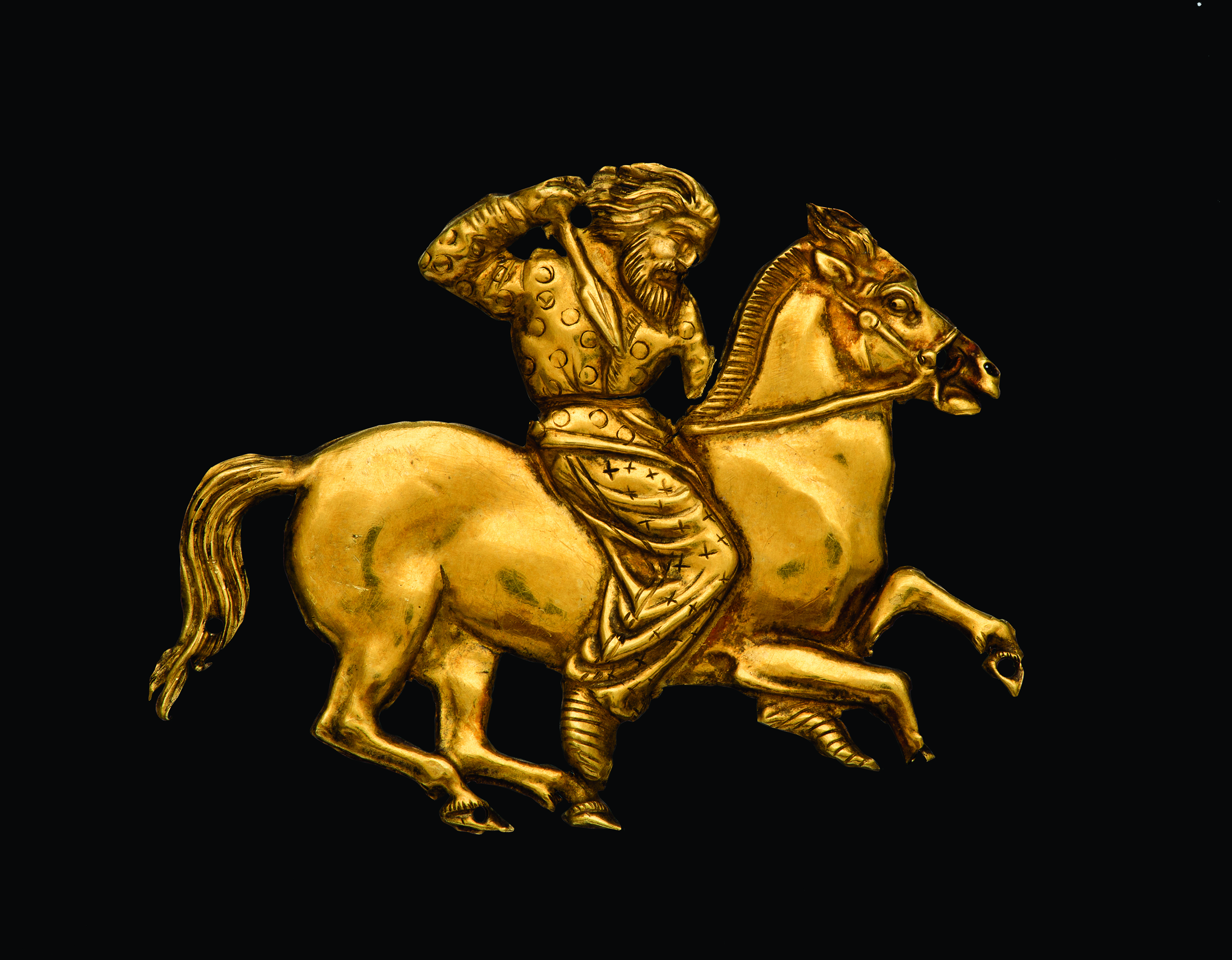Scythian rider with spear 400-350 BCE
“By no means stand aside and let us be destroyed,” they said; “rather, let us unite and oppose this invader. If you will not, then we shall either be driven out of our country or stay and make terms. For what is to become of us if you will not help us? And afterward it will not be easy for you, either; for the Persian has come to attack you no less than us, and when he has subjugated us he will not be content to leave you alone. We will give you a convincing proof of what we say: if indeed the Persian were marching against us alone, wanting vengeance for our former enslavement of his country, he ought to leave others alone and make straight for us, and would show everyone that Scythia and no other country was his goal. But as it is, from the day he crossed over to this continent, he has been taming all that come in his way, and he holds in subjection not only the rest of Thrace, but also our neighbors the Getae.”
After the Scythians had made this speech, the kings who had come from the nations deliberated, and their opinions were divided. The kings of the Geloni and the Budini and the Sauromatae were of one mind and promised to help the Scythians; but the kings of the Agathyrsi and Neuri and Maneaters and Black-cloaks and Tauri gave this answer to the messengers: “Had it not been you who wronged the Persians first and began the war, what you now ask would seem to us right, and we would listen and act together with you. But as it is, you invaded their land without us and ruled the Persians for as long as God granted; and the Persians, urged on by the same God, are only repaying you in kind. But we did these men no wrong at that former time, nor do we intend now to wrong them first; but if the Persian comes against our land too and begins the wrong-doing, then we will not accept it, either; but until we see that, we shall keep to ourselves. For in our judgment the Persians have not come for us but for those who were the agents of wrong.” When this answer was brought back to the Scythians, they determined not to meet their enemy in the open field, since they could not get the allies that they sought, but rather to fall back driving off their herds, choking the wells and springs on their way and destroying the grass from the earth; and they divided themselves into two companies. It was their decision that to one of their divisions, which Scopasis ruled, the Sauromatae be added; if the Persian marched that way, this group was to retire before him and fall back toward the Tanaïs river, by the Maeetian lake, and if the Persian turned to go back, then they were to pursue and attack him. This was one of the divisions of the royal people, and it was appointed to follow this course; their two other divisions, namely, the greater whose ruler was Idanthyrsus, and the third whose king was Taxakis, were to unite, and taking with them also the Geloni and Budini, to draw off like the others at the Persian approach, always keeping one day's march ahead of the enemy, avoiding a confrontation and doing what had been determined. First, then, they were to retreat in a straight line toward the countries which refused their alliance, so as to involve these, too, in the war; for if they did not of their own accord support the war against the Persians, they must be involved against their will; and after that, the division was to turn back to its own country, and attack the enemy, if in deliberation they thought this best. Determined on this plan, the Scythians sent an advance guard of their best horsemen to meet Darius' army. As for the wagons in which their children and wives lived, all these they sent forward, with instructions to drive always northward; and they sent all their flocks with the wagons, keeping none back except what was required for their food."
-Herodotus, The Histories, Book 4.118-121
 |
| Scythian rider with spear 400-350 BCE. Hermitage Museum. |
Source:
Quote:


Comments
Post a Comment